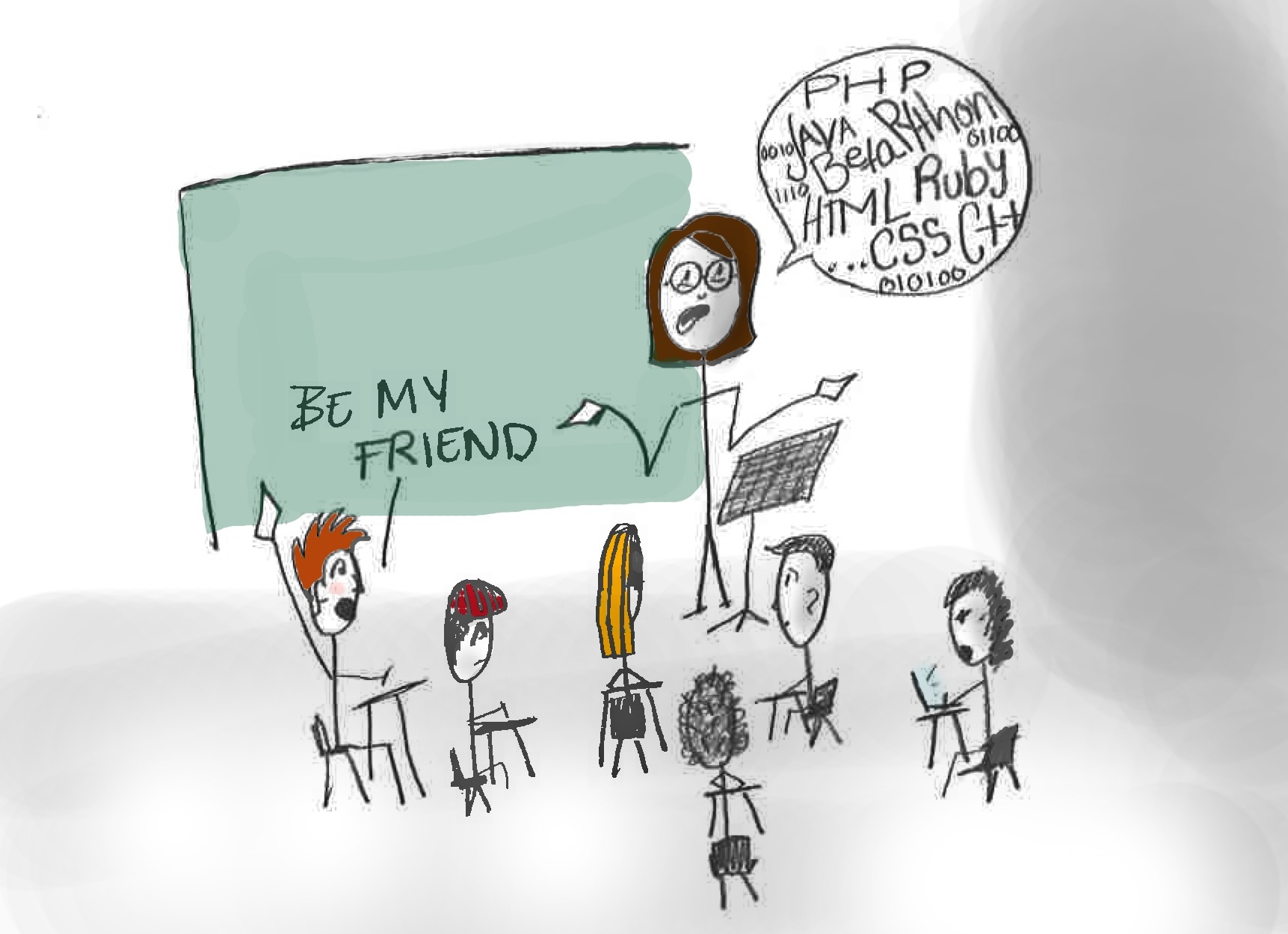Classes have officially begun, so you might be feeling some of that stress underneath the excitement of starting college. If so, we have more survival tips for your sake. If you’re just now catching on to this trendy survival guide, follow these links to Part 1 and Part 2. And now, without further ado, strategy number 5:
5. G E T T H R I F T Y W I T H T E X T B O O K S
Something you will notice when classes start is that 1) you’re already late on ordering textbooks 2) wow, there are a lot more books to buy than you expected and 3) these books are hella expensive. Instead of ignoring the issue altogether and not ordering books at all (thus creating a larger issue due to the fact that you will need books at some point)*, dig around a little before buying your books from the campus bookstore (sorry, Barnes and Noble). The designated campus bookstore, no matter which school you’re going to, has, can, does, and always will gyp you on book prices. Sure you can sell it back at the end of the semester….for about 2% of what you paid. An easier way to go about book buying is to Google the ISBN number you’ve been given and compare prices. Most often Chegg and Amazon have the best deals on text books. Used books are a godsend and free shipping is easy to come by if you (or a friend) have Amazon Prime (students can get a free 6 month trial, by the way).
Another thing to remember when it comes to saving on textbooks is that older students are probably eager to get rid of books they don’t need anymore. Check out forums or groups online (you’ll find most of those on Facebook these days) to see if anyone has made a post saying they have books for sale. If you can’t find the books you need in other posts, make your own post saying which books you’re looking to buy. This can be a little less reliable, but it’ll probably be the cheapest way when things work out.
* There are times when you will be told to buy a book for a class, but the professor will never mention it again and you will never need it. This usually happens in Gen-Ed/Core classes that everyone must take. Those classes will have an automated system that posts which books are needed, whether or not the professor intends to use them. For these classes, we suggest waiting until you have a syllabus or asking around about the professor you have to see if you’ll be needing the book. Nothing hurts the wallet more than buying a book you’ll never crack, especially when you realize it too late and the book store buys it back for 5$.
6. S A F E T Y
Last but not least, no one wants you to die during your freshman year. Okay, death does not happen all that often, but there are ways to avoid stupid mistakes that could injure or maim yourself and others. NYC is a place that does not cater to the careless or hesitant and keeping a keen eye on your surroundings is essential. First of all, traffic here is unrelenting. Cars, bikers, and pedestrians all think the city revolves around them and in their hasty lifestyles, they do not have time to short-stop each time someone isn’t paying attention. Anticipate the traffic around you to avoid collisions.
Another unavoidable issue for Freshmen is substance abuse. Everyone is exposed to the experimental environment that is Freshman Year of College. If you’re participating, take it little by little. There have been many cases where freshmen try too many things in too little time and their bodies cannot handle it, if you get the drift, here.

NYC is also home to many people who will nick your belongings if you’re not being careful. The issue is blown out of proportion by the media and non-New Yorkers, yes, but it does happen often enough to still be a problem. Some people still go as far as keeping two wallets with them, one empty and one with their necessities. This way, any pickpockets or thieves are likely to take an empty wallet, which is definitely preferable to having all your cards and money stolen. We believe the most important thing is to have caution in crowded areas. Any pickpockets are going to have their eyes on people on the other side of a crowded train, or in front of them on a crowded sidewalk. In the rush that accompanies a large crowd, pickpockets have it easy if you’re not careful. Headphones will make you an easier target. Sunglasses will make you a more difficult target. But overall, being alert is going to be the most effective protection against theft.
This list could go on and on, but the semester has started and you’ll be learning so many new things that only these essentials will be necessary to learn. Hopefully you are all able to wean some sort of wisdom from those of us who have experienced Freshman year and made it out alive and well with good grades and good friends. Most of all we wish you luck with these first few months of the rest of your lives.





